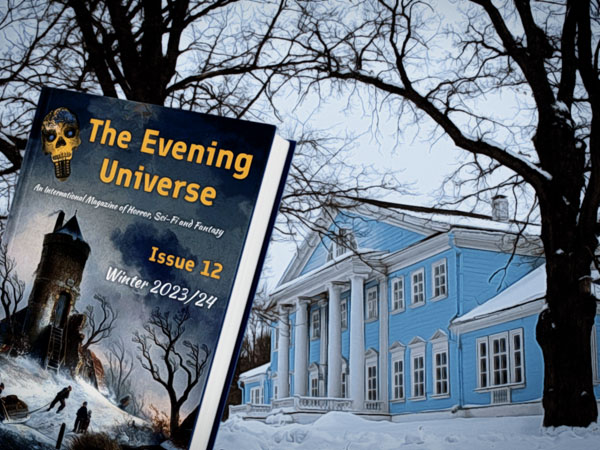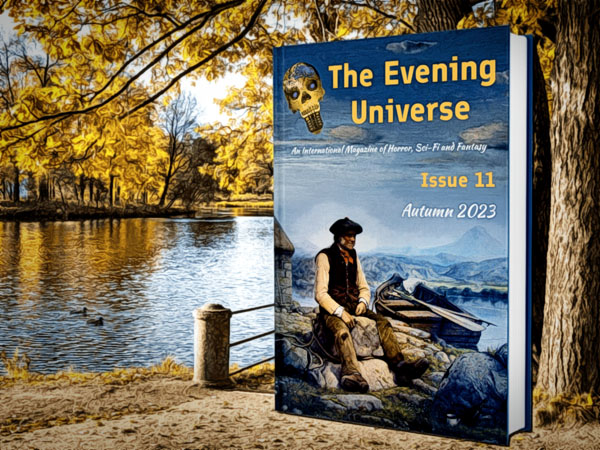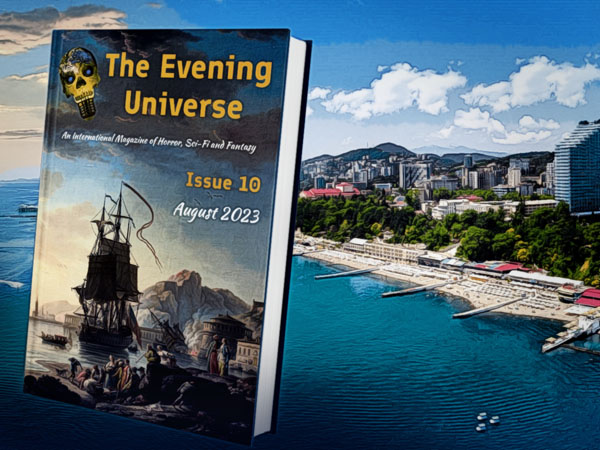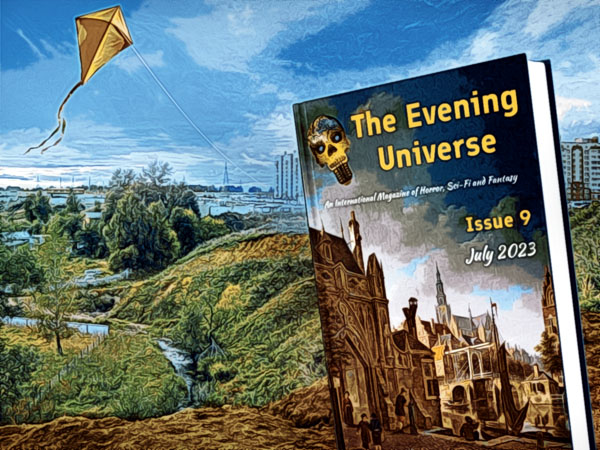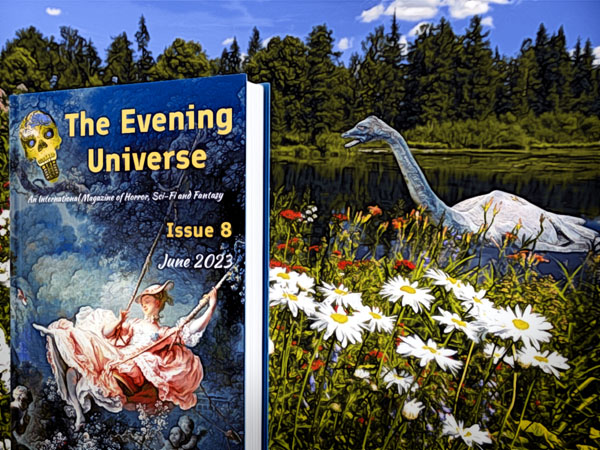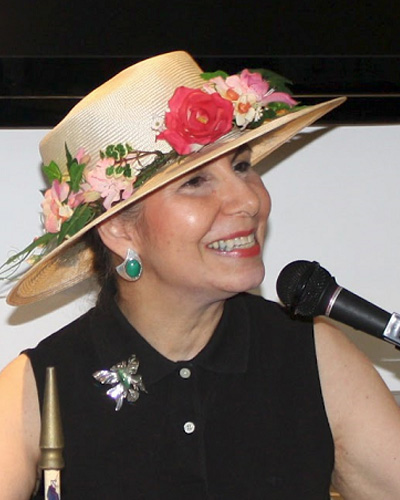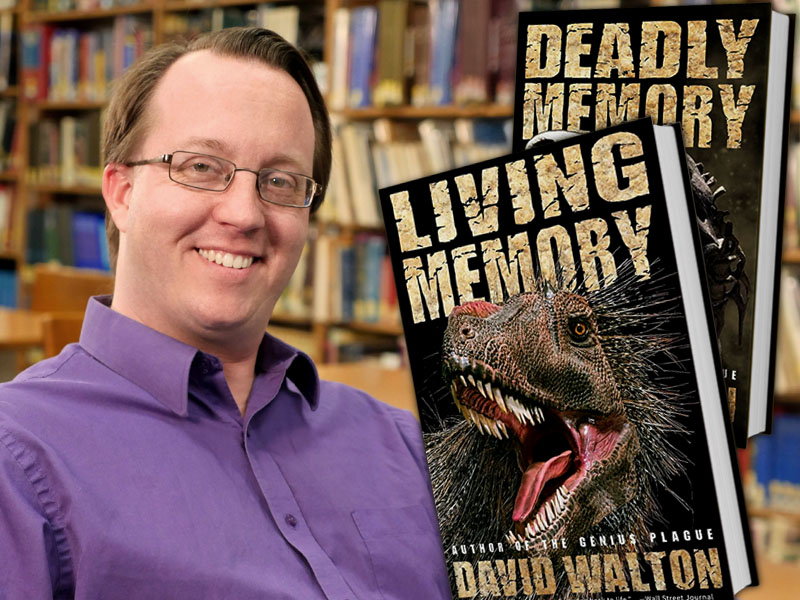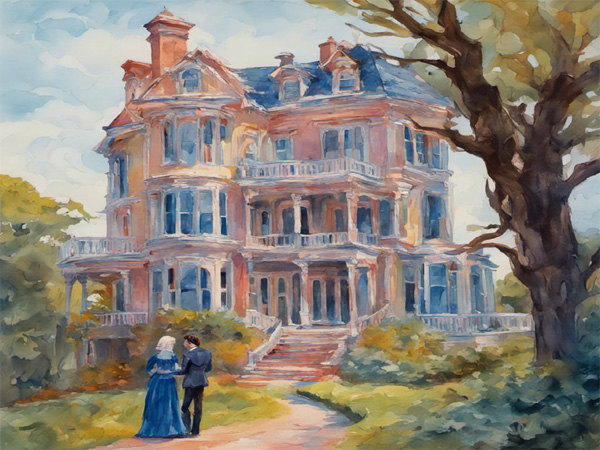
Illustration by the author
When my parents died, mourners were shocked at their opulent adieu. Few suspected the impressive inheritance they would bequeath to their only child. Though their faded shopkeeper’s sign was the usual three spheres’ emblem for pawnbrokers, a symbol dating back to the Medicis, that was half the truth. Only I knew about the secret clay tunnels under the woebegone clapboard structure where souls passed. Supernatural services, the dead sailing to the afterlife in great ghost ships of burial shoes, amassed riches. Now my fortune.
Investing in a dilapidated hostelry, rumored to be haunted, its horse urine reek still pungent under fresh hay and cedar chips, I overheard whispered chuckles about “Annabel’s Folly.” But before six full moons, a well-paid foreign architect transformed this forlorn pile into my coastal inn, Kingdom by the Sea.
Peril percolated, however. During that formidable snowfall in 1848, when the filigreed roof of my Widow’s Walk began to cave in, it was obvious that a journeyman would be needed for ongoing maintenance.
It was shortly after Christmas that he, dishonorably discharged, introduced himself to me. He claimed he’d shield me from the “Tyranny of Ordinary.”
I replied, “Can you clean drains, repair pocket-doors, and fix pipes with a mortician’s care?”
“Winged seraphs,” he sighed, adding, “Sounds dreamy.”
Handsome though he was, this fellow was not in touch with reality, describing my lodging house as a sepulcher. Since this was on the outskirts of Baltimore, the morbid term eluded less sophisticated travelers. Still. It rankled me.
Eventually, his nihilism had reached the nth degree, always contemplating mortality not unlike an instrument forbidding music. A swell mechanic, sure, but his morose mindset was only fit for poetry.
Alas, Hurricane Ophelia uprooted my weeping willows and cypress trees, chilling and killing my monthly income by the sea, chilling and killing my prized B and B. By then, my property appeared on the newly drawn flood maps because the Patapsco River was sidling up my lawn after the winter thaw.
While sweeping up the branches, leaves, and non-compostable debris, he and I disagreed. As storm winds rushed me into the sounding sea, I felt his treacherous hands on my back.
How strange. He’s been going around town calling me “his bride.” He tells them he “sees my bright eyes,” and he mourns by my sepulcher built near the sea.
I had wanted another duty, to be the chronicler of his demise, to host readings of my book in my firelit parlor, amber combs in my hair like funeral lace, my literary light drinking up the world.
Though my days of bartering with plumbers, raccoon trappers, and exterminators are over, my ghost has to cope with tourists reading my extravagant epitaph in iambic pentameter aloud.
Famous now, he’s published by FSG[*].
* Farrar, Straus and Giroux (FSG) is an American book publishing company; its authors have won numerous awards, including Pulitzer Prizes, National Book Awards, and Nobel Prizes.

